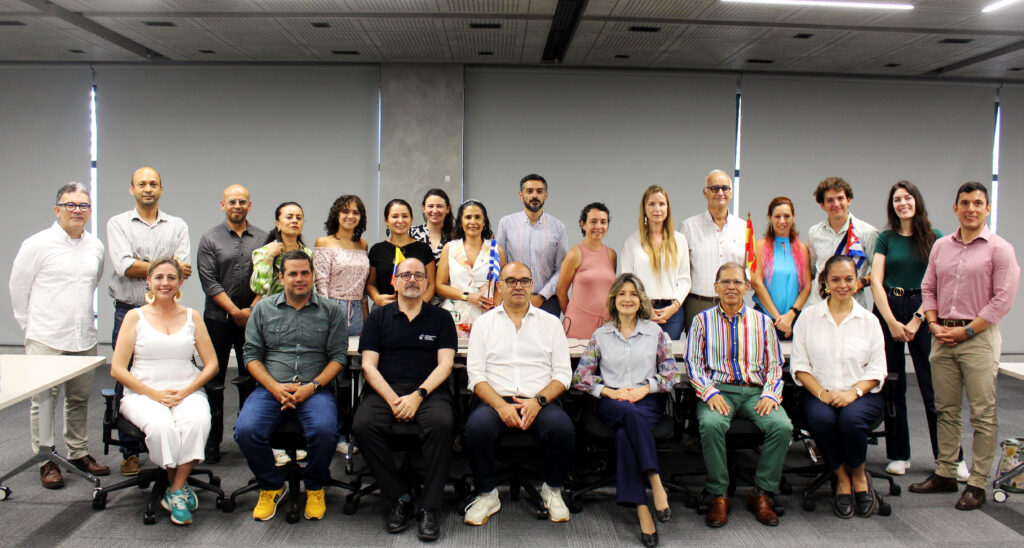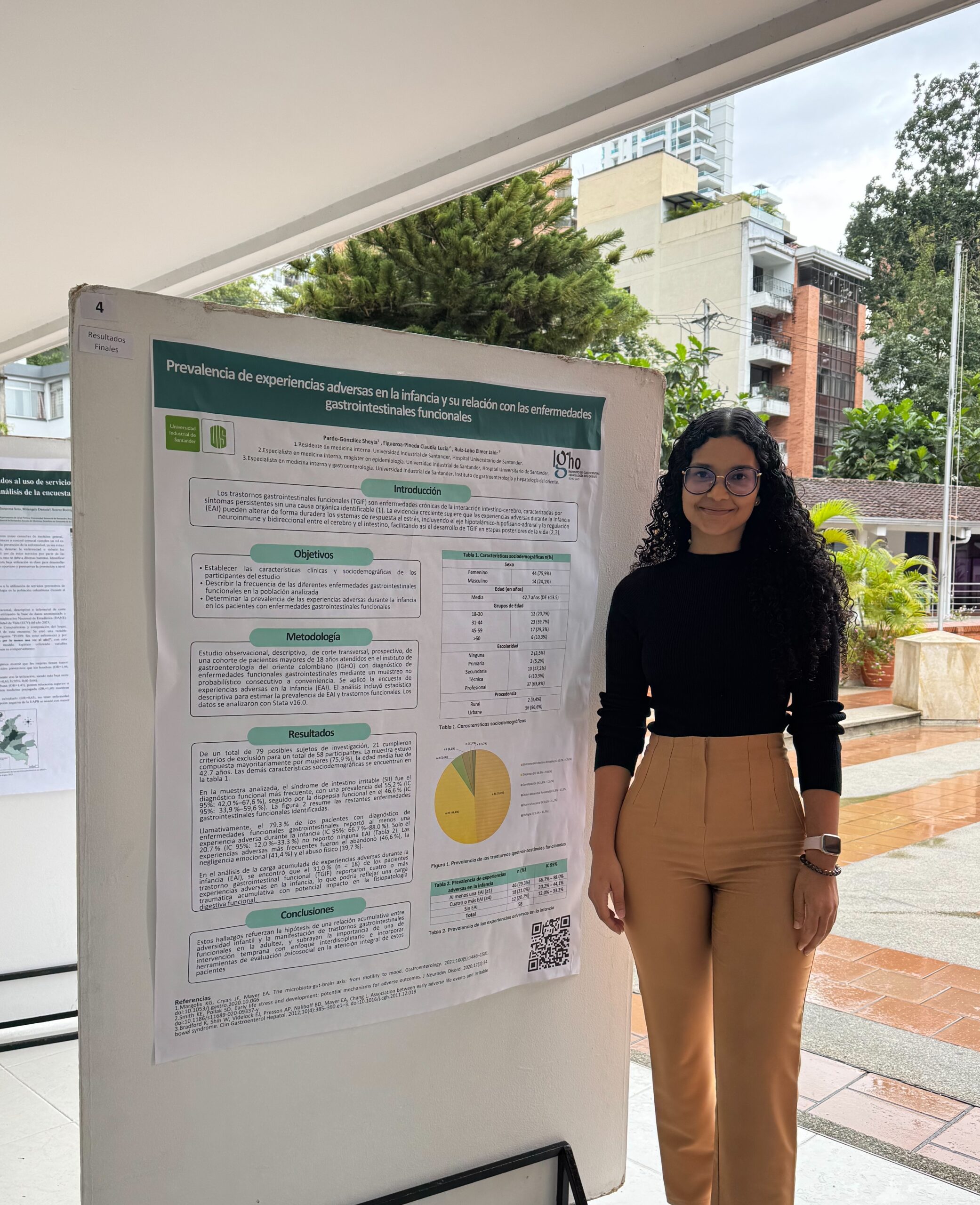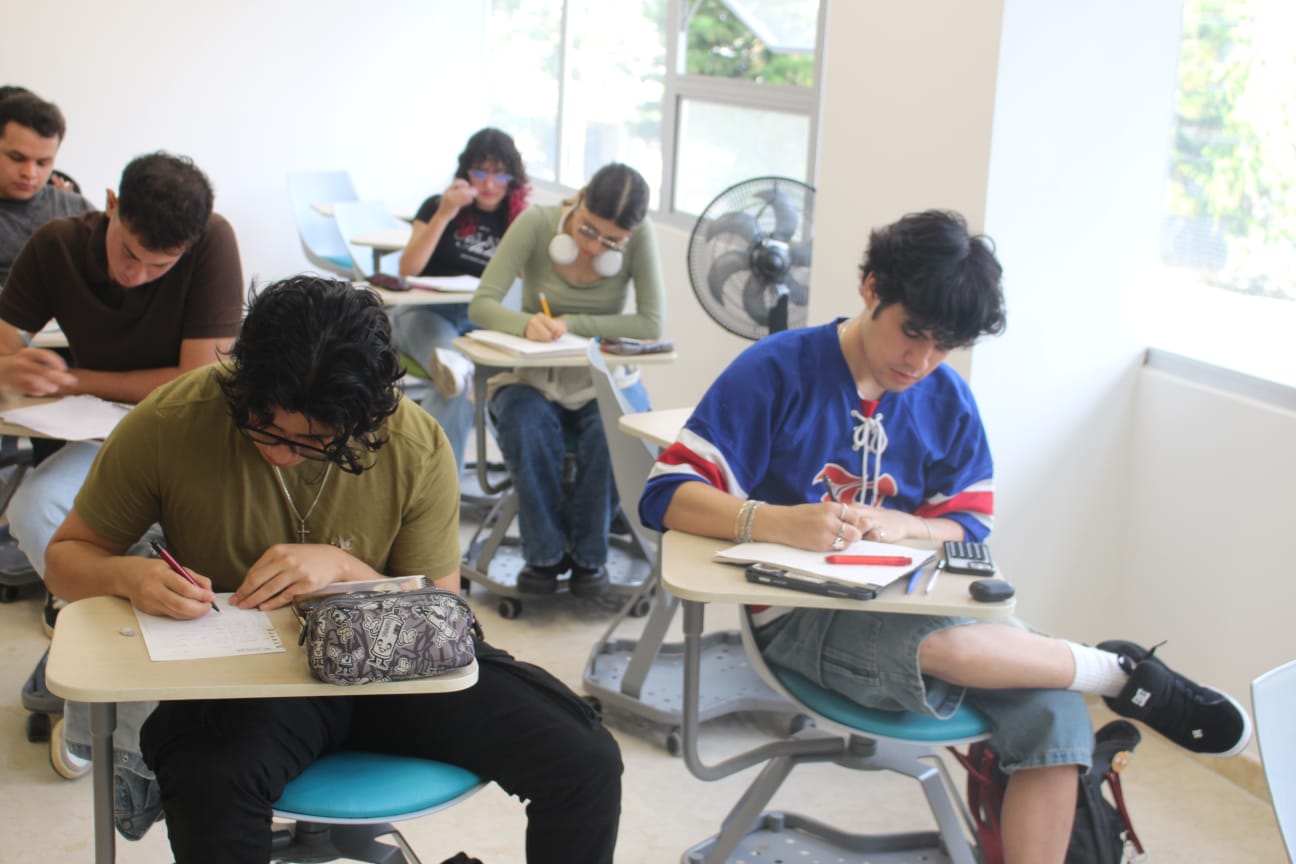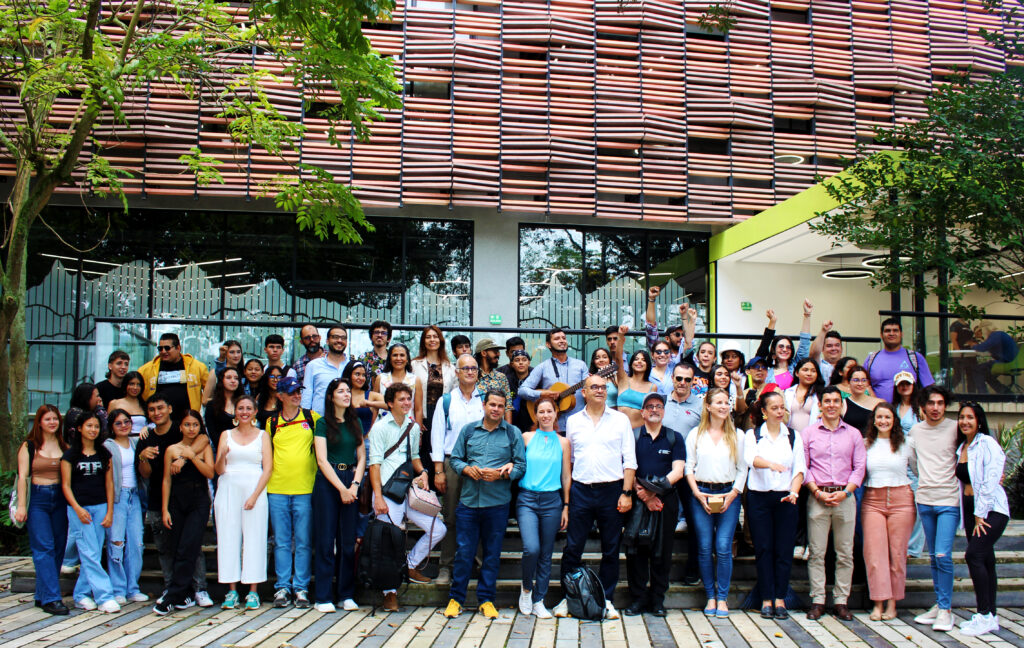
The Universidad Industrial de Santander (UIS) became the epicenter of international academic cooperation with the official inauguration of the ERASMUS+ program at its facilities, marking a milestone in the consolidation of global partnerships in higher education. The opening ceremony was accompanied by the launch of the “Vive el Patrimonio” project, an experience that took attendees on an interactive and artistic tour through the historical and cultural legacy of the university’s central campus.
This initiative, organized by the Directorate of External Relations and the School of Industrial and Business Studies, offered a unique space to appreciate the heritage value of the UIS. Students of the Professional Technical Program in the Execution of Cultural and Creative Projects were the protagonists of the day, presenting scenic and artistic interventions that interpreted in a creative and educational way the heritage works of the campus.
“The objective is to show what is in the environment of our institution, what identifies us, who were its founders or founding fathers,” said José Luis Martínez, student participant. Sharith Paola Salazar Medina, also a student, said: “the main contribution is to have the opportunity to get involved in the creation of characters and to show these spaces that educate us, because culture is a fundamental part of education”.
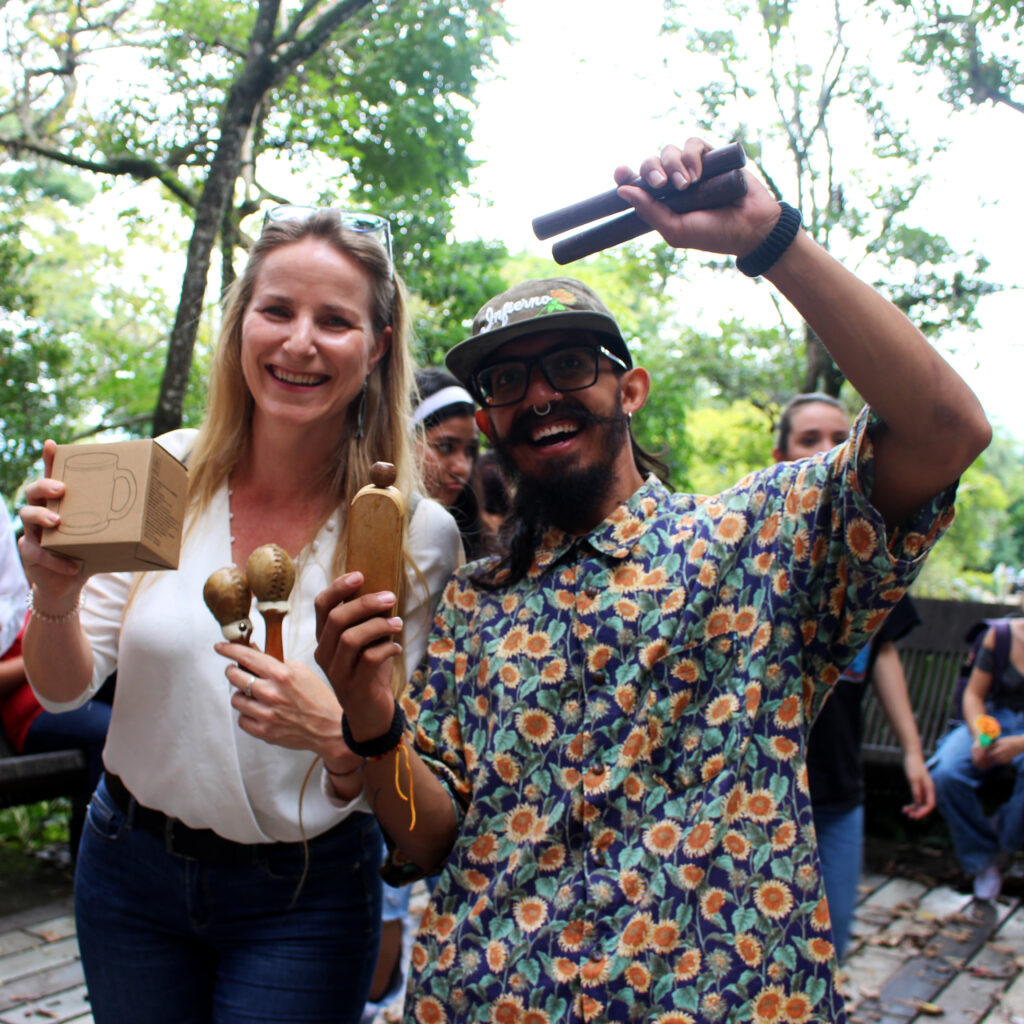
The event was also the scene of the “Open Discussion” conversation, in which representatives of institutions such as the University of Alicante (Spain), the University of Havana (Cuba), the Hellenic International University (Greece) and the UIS itself discussed academic cooperation policies, international mobility and future joint programs.
Manuel Palomar Sanz, director of the Artificial Intelligence Center at the University of Alicante, noted that the meeting was aimed at advancing the proposal for the Erasmus Mundus Master’s Degree in Language Technologies and Large Language Models, a program in which universities from Greece, Cuba, Spain and Colombia are participating. “We are at UIS preparing a solid proposal that will have a great academic impact,” he said.
Isabel Espinoza Zaragoza, also from the University of Alicante, highlighted the importance of Colombia’s presence in the consortium: “Extending collaborations with the Universidad Industrial de Santander is fruitful and necessary to carry out a program that we know will be satisfactory in the future”.
From the UIS, Professor Piedad Arenas, one of the facilitators of the agreement, underlined the transformative potential of the project, highlighting that “the purpose of these consortia is to create spaces that allow students to pursue a master’s degree in Natural Language Processing Technologies with an emphasis on Innovation, within a period of six years”. Arenas added that this alliance opens new doors of internationalization for both students and professors, enriching their academic trajectories through mobility abroad.
The Academic Council of the UIS greeted with enthusiasm the realization of this event, which is emerging as a significant step towards the consolidation of a global university, committed to comprehensive training, culture and inter-institutional cooperation.
